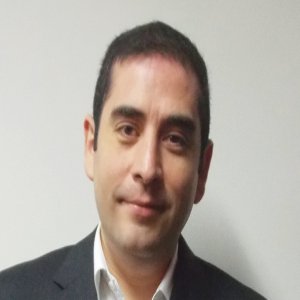A Quest for Prevention and Timely Diagnostics

STORY INLINE POST
Q: What is the Mexico’s role in your corporate strategy?
A: Quest Diagnostics has worked in Mexico for more than 40 years and the country is one of our priority markets in Latin America. We first entered this market by acquiring Laboratorios Frontera, one of the most important diagnostic companies in Mexico City. Our operations in this country are different from the rest of Latin America. We work mainly as a reference business, which means the tests that hospitals cannot process are mailed to our laboratories in the US and the results are transmitted online. Alongside this, we also have local offices and laboratories that allow us to provide services within Mexico and neighboring countries. Our main defining character is innovation as we provide exclusive tests and are constantly developing new ones. We work with hospitals, physicians, insurance companies, other laboratories and companies that are implementing wellness programs or drug testing. On occasion, we offer our services directly to patients, but this remains a small area that we need to expand. Furthermore, we offer innovative tests which are already available in the market, but of which few Mexican physicians are aware. We are raising awareness of our newest tests and services by providing more comprehensive information to physicians and hospitals. Among other activities, we organize training and informative sessions for physicians. Our main communication channels in Mexico are hospitals and laboratories, through which we ultimately communicate key information to physicians.
Q: Who are your main customers?
A: While we do work with the public sector, we focus mainly on the private sector as it usually has the economic resources and the incentives to acquire the most modern tests. While public hospitals belonging to IMSS and ISSSTE have sound infrastructure and qualified physicians, they usually have limited budgets due to the high quantity of patients they must treat. This is another reason leading us to send certain tests to the US. While we can perform most tests in Mexico, it is not economically feasible for us to perform all of them here given the large investments in equipment and personnel this would require. Most importantly, moving all tests to Mexico will not improve our service times or efficiency since we cannot run tests every single day without a set minimal volume. Furthermore, most of our laboratories are specialized in concrete areas so not all samples can be analyzed at every laboratory. Most of our equipment is expensive and it is more cost-effective to concentrate a large volume of tests in a single location, which is why some of our laboratories receive samples from across the globe. Furthermore, while automation is becoming a trend worldwide, it is not gathering pace in Mexico. One of the likely restrictions in introducing automation to Mexico is that it requires a high volume of tests in order to fully capitalize on the benefits of the technology. Many Mexican patients may be unwilling to undergo or unable to afford these tests and we need to work to convince them of these advantages. Our testing process is very competitive and very efficient, with the longest waiting period being the time needed to mail the sample to the laboratory. We overcome this somewhat by having IT platforms that are connected to our corporate systems, so we are able to easily transfer results to laboratories and physicians.
Q: What are the trends in the diagnostics sector and what are the newest tests you have introduced to the market?
A: We have several different tests in every area but our largest portfolio of tests covers oncology, neurology, and, infectious and cardiovascular diseases. Despite this, we are always developing new technologies and we have the most diverse set of tests possible. However, a growing worldwide trend is the rise in molecular and DNA-based tests. These are not common in Mexico yet, although demand is steadily increasing. While there are many new tests being developed in this area, few companies can provide them. The area of personalized medicine is also growing but these procedures take considerable time and money. These tests are extremely accurate and beneficial for patients as, not only can they provide unique and precise information but they can also guide doctors to provide effective treatments and to suggest targeted prevention strategies. With the help of our main suppliers we are trying to automate some of our services. It is only viable to automate the most popular areas of the business in order to gain the most benefits.
Q: Do you believe that Mexico could grow enough in the next five years for Quest Diagnostics to concentrate many tests in the region?
A: Absolutely. Mexico currently has a young population but this will change in the near future to provide us with an opportunity to work on prevention. It is common for Mexicans to wait for a disease to manifest itself before treating it, which may incur increased costs and lower their quality of life. Insurance companies could help us to raise awareness about different diseases and of the tests that could be used to diagnose them. Some insurance companies are actually already including these tests in their policies. Ultimately, prevention is better for the whole sector as it improves patients’ lives and helps save costs by reducing the number of preventable diseases. We are collaborating with public and private institutions to promote prevention and timely diagnostics, especially for emerging infectious diseases. We have specific tests for reproductive clinics to measure the health of an expectant mother and monitor the growth and development of the fetus. These tests are becoming more common as women are having children later than ever.
Q: What plans do you have to expand and consolidate in Mexico?
A: The first requirements to set up a business like ours are efficient couriers and proper sample preservation. Our laboratories worldwide are certified by ISO and the College of American Pathologists. In addition to this, our network comprises more than 2,200 Patient Service Centers, with more than 45,000 employees supported by a medical and scientific staff of more than 700 M.Ds and PhDs, whose key focus is putting patients first. We plan to grow both in Mexico and in Latin America. At this point, we are offering our tests in almost every country in Latin America as demand is growing through the region. Within Mexico, we want to increase the number of Patient Service Centers (PSC) in Mexico City and the metropolitan area. However, while there is potential to expand, it is not our main focus at this point since we are able to cover all our clients’ needs with our current laboratories. We currently have 29 Patient Service Centers in Mexico City and six in Ciudad Juarez, Chihuahua, and our main focus in Mexico is to offer our specialized tests. Quest Diagnostics also wants to work toward offering diagnostic solutions to employers, pharmaceutical companies, and Contract Research Organizations (CROs).























